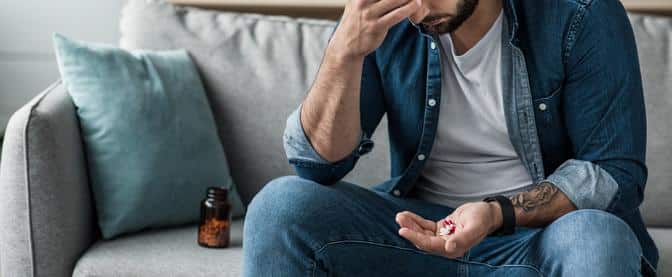Becoming a mother can be a wonderful and life-changing moment. But, we need to acknowledge that it can also come with new emotions and physical challenges. Sleep deprivation, information overload, and hormonal changes can take a toll on your mind.
One challenge that we need to talk more about is postpartum depression. This type of depression that can occur after birth affects around 10-15% of new mothers. While some find the support and resources to overcome it, others may turn to less healthy coping mechanisms.
Identifying the Symptoms of Postpartum Depression
Let’s start by making one thing clear: postpartum depression (PPD) and the “baby blues” aren’t the same thing. The baby blues are normal feelings of sadness or emotional ups and downs that many new mothers experience in the first few weeks after giving birth. PPD is more severe and longer lasting, and it requires treatment
The symptoms of postpartum depression can vary widely, but some of the most common ones include:
- Persistent feelings of sadness, hopelessness, or helplessness
- Loss of interest in activities that were once enjoyed
- Difficulty bonding with the baby
- Difficulty sleeping, even when the baby is sleeping
- Fatigue and lack of energy
- Changes in appetite
- Difficulty concentrating
- Thoughts of self-harm or harming the baby
How Are PPD and Addiction Connected?
It’s not unusual for postpartum depression to lead to addiction. When a new mother is struggling with PPD and can’t cope with the demands of motherhood, she may turn to substance use to tame the overwhelming feelings of sadness, hopelessness, and isolation that she is experiencing.
Moreover, when some mothers are prescribed medication to help them cope with PPD, they can become addicted to these medications.
How Are PPD and Addiction Treated?
Depending on your case, treatment can involve a combination of therapy, medication, and support groups.
Cognitive-behavioral therapy (CBT,) for example, is commonly used to treat PPD. This type of therapy can help you change negative patterns of thought and behavior by identifying triggering thoughts and beliefs.
Antidepressant medication is used to help alleviate the symptoms of PPD. However, as mentioned before, it’s important to be aware of the potential for addiction with these medications and work closely with a healthcare provider to manage them.
Support groups, such as Postpartum Support International, can be a valuable resource for new mothers struggling with PPD and addiction. These groups provide a safe and supportive environment where mothers can share their experiences and offer each other support and encouragement.
Can Postpartum Depression Be Prevented?
Unfortunately, PPD can’t really be prevented. However, it can help if new mothers have access to information about PPD, set realistic expectations about how life with a newborn will be and get their partner involved as much as possible.
Additionally, healthcare providers should be trained to recognize the signs and symptoms of PPD and provide appropriate treatment.
Most importantly, ask for specialized health whenever you are feeling overwhelmed by your thoughts and emotions.
Need help fast? Call Rehab UK now for expert help and advice. Rehab South Africa is part of the Rehab Helper network.
